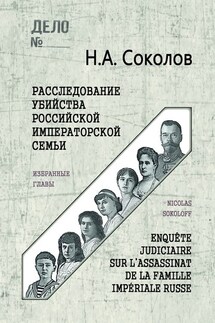Нигерия: народы и проблемы - страница 3
And what a weird thing it is when you come to worry it out, that this alien hand should have descended and compelled peace! Viewed in the abstract, one feels it may be discussed as a problem of theory, for a second. One feels it permissible to ask, will the people, or rather will the Governors of the people which has brought peace to this land, which has enabled the peasant to till the soil and reap his harvest in quietness, which has allowed the weaver to pursue and profit by his industry in safety, which has established such security throughout the land, that you may see a woman and her child travelling alone and unprotected in the highways, carrying all their worldly possessions between them; will this people’s ultimate action be as equally beneficial as the early stages have been, or will its interference be the medium through which evils, not of violence, but economic, and as great as the old, will slowly, but certainly and subtly, eat into the hearts of these Nigerian homes and destroy their happiness, not of set purpose, but automatically, inevitably so? I say that, approached as an abstract problem, it seems permissible to ask one’s self that question as one wanders here and there over the face of the land, and one hears the necessity of commercially developing the country to save the British taxpayers’ pockets, of the gentlemen who want to exploit the rubber forests of the Bauchi plateau, of the Chambers of Commerce that require the reservation of lands for British capitalists, and of those who argue that a native, who learned how to smelt tin before we knew there was tin in the country, should no longer be permitted to do so, now that we wish to smelt it ourselves, and of the railways and the roads which have to be built—yes, it seems permissible, though quite useless. But I confess that when one studies what is being done out here in the concrete, from the point of view of the men who are doing it, then it is no longer permissible to doubt. When one sees this man managing, almost single-handed, a country as large as Scotland; when one sees that man, living in a leaky mud hut, holding, by the sway of his personality, the balance even between fiercely antagonistic races, in a land which would cover half a dozen of the large English counties; when one sees the marvels accomplished by tact, passionate interest and self-control, with utterly inadequate means, in continuous personal discomfort, short-handed, on poor pay, out here in Northern Nigeria—then one feels that permanent evil cannot ultimately evolve from so much admirable work accomplished, and that the end must make for good.
And, thinking over this personal side of the matter as one jogs along up hill and down dale, through plain and valley and mountain side, through lands of plenty and lands of desolation, past carefully fenced-in fields of cotton and cassava, past the crumbling ruins of deserted habitations, along the great white dusty road through the heart of Hausaland, along the tortuous mountain track to the pagan stronghold, there keeps on murmuring in one’s brain the refrain: “How is it done? How is it done?” Ten years ago, nay, but six, neither property nor life were safe. The peasant fled to the hills, or hurried at nightfall within the sheltering walls of the town. Now he is descending from the hills and abandoning the towns.






